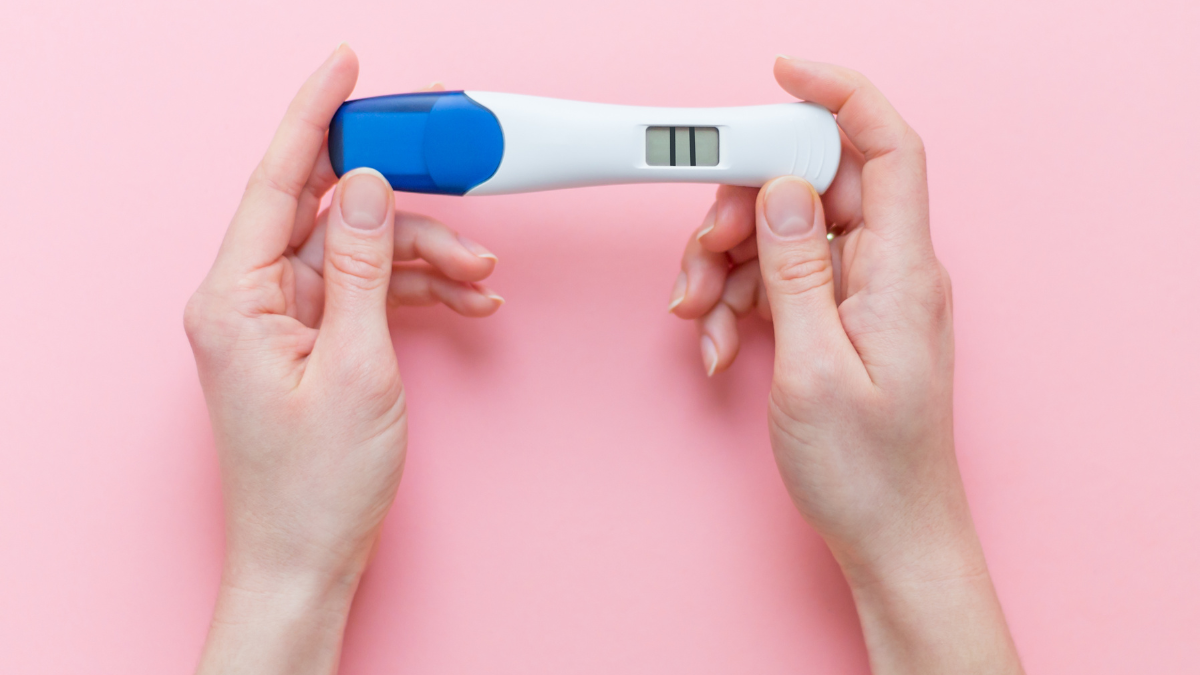Pregnancy is a time when every supplement you take matters—not just for you, but for your growing baby. One supplement that often raises questions is Emergen-C, the fizzy, high-dose vitamin C drink loved for its immune-boosting benefits. With 1,000 mg of vitamin C per packet, it’s tempting to reach for it daily, especially during cold and flu season.
But is Emergen-C safe for expecting moms? Can it be taken every day, and does it provide other essential nutrients like folic acid? In this guide, we break down 5 important things you should know about Emergen-C during pregnancy, including its benefits, potential risks, dosage guidelines, and safer alternatives.
Whether you’re looking for a quick immune boost or just trying to stay healthy, understanding how Emergen-C fits into your pregnancy routine is essential for both your well-being and your baby’s development.
Table of Contents
What is Emergen-C Vitamin C During Pregnancy?
Emergen-C is a popular effervescent dietary supplement known for its high vitamin C content, along with other vitamins and minerals designed to support immune health and overall wellness. It typically comes in single-serving powder packets that dissolve in water, creating a fizzy, flavored drink.
Key Components:
- Vitamin C: Usually 1,000 mg per packet, much higher than the recommended daily allowance for adults.
- B Vitamins: Includes B1, B2, B3, B6, B12, which support energy metabolism.
- Electrolytes: Contains minerals like calcium, magnesium, and potassium for hydration and overall body function.
- Other Nutrients: Some formulations may include zinc or antioxidants to help support immune health.

Why People Take:
- Immune Support: Helps support the body’s natural defenses during cold or flu season.
- Energy Boost: The B vitamins and vitamin C can provide a temporary energy lift.
- Convenience: Easy-to-use packets for busy lifestyles, travel, or quick supplementation.
Considerations During Pregnancy:
- The high vitamin C dose (1,000 mg) is well above the pregnancy RDA of 85 mg, so it should be used cautiously.
- Not a replacement for prenatal vitamins or a balanced diet.
- Always consult your OB/GYN before taking Emergen-C during pregnancy to ensure it’s safe for you and your baby.
What Does Emergen-C Actually Do?
Emergen-C is more than just a fizzy drink—it’s a high-dose vitamin and mineral supplement designed to support several key functions in the body. Understanding what it does can help you make informed choices during pregnancy.
1. Supports the Immune System
- Vitamin C is a powerful antioxidant that helps protect cells from damage.
- It may reduce the severity and duration of colds and other minor infections.
- During pregnancy, your immune system naturally changes, so supporting it with safe nutrients can be helpful—though food sources are generally preferred.
2. Boosts Energy and Metabolism
- The B vitamins in Emergen-C (B1, B2, B3, B6, B12) help convert food into energy.
- Many people report feeling a temporary energy lift after taking Emergen-C.
- This can be appealing during pregnancy fatigue, but natural sources like whole grains, fruits, and vegetables are safer and more sustainable.
3. Enhances Nutrient Absorption
- Vitamin C improves iron absorption, which is crucial during pregnancy to prevent anemia.
- Taking Emergen-C alongside iron-rich foods can help your body utilize iron more efficiently.

4. Supports Skin, Tissue, and Collagen Health
- Vitamin C is essential for collagen production, which supports skin elasticity and connective tissue.
- During pregnancy, this can help maintain skin health as your body changes.
5. Provides Electrolytes
- It contains calcium, magnesium, and potassium, which help maintain proper hydration, muscle function, and electrolyte balance.
- This can be useful if you’re active or experiencing dehydration, but drinking water and eating electrolyte-rich foods is typically safer during pregnancy.
Important Pregnancy Considerations
- One packet of Emergen-C contains 1,000 mg of vitamin C, far exceeding the pregnancy RDA of 85 mg.
- Occasional use may be safe, but daily high-dose supplementation is not recommended.
- Always consult your OB-GYN before using Emergen-C or similar high-dose vitamin supplements.
It provides immune support, energy, nutrient absorption benefits, and electrolytes—but its high vitamin C content requires careful use during pregnancy. Natural food sources and prenatal vitamins are generally safer for consistent intake.
Is Emergen-C Safe During Pregnancy?
Pregnancy is a time when every supplement or medication must be carefully evaluated. Emergen-C contains 1,000 mg of vitamin C per packet, which is significantly higher than the recommended daily allowance (RDA) of 85 mg for pregnant women.
Key Considerations:
- High Dosage: One packet of Emergen-C provides more than 10 times the daily requirement of vitamin C. Occasional intake may not be harmful, but regular high doses are not recommended.
- Consult Your OB/GYN: Every pregnancy is unique, and your doctor can help determine whether extra vitamin C is necessary.
- Interactions with Other Supplements: Many prenatal vitamins already contain vitamin C. Taking Emergen-C alongside your prenatal vitamin may exceed safe limits.
It is generally safe in moderation during pregnancy, but it should not be taken daily without medical supervision.
Is Taking Emergen-C Every Day Okay During Pregnancy?
Many expecting moms wonder if it’s safe to take Emergen-C daily for immune support, energy, or overall wellness. While Emergen-C is popular for its high vitamin C content (1,000 mg per packet) and added B vitamins, daily use during pregnancy is generally not recommended.
Why Daily Use May Be Risky
- Excess Vitamin C
- The RDA for vitamin C in pregnancy is 85 mg per day, far below the 1,000 mg in one Emergen-C packet.
- Consistently exceeding this limit can cause digestive issues such as diarrhea, nausea, or stomach cramps.
- Potential Kidney Strain
- High-dose vitamin C can increase the risk of kidney stones in women who are prone to them.
- Pregnancy itself can alter kidney function slightly, so caution is needed.
- Redundant Supplementation
- Most prenatal vitamins already contain vitamin C. Taking Emergen-C on top of a prenatal supplement may lead to unnecessarily high intake without extra benefits.

Safer Alternatives to Daily Use
- Occasional Use: Using Emergen-C only when needed, such as during cold season, is generally safer.
- Half-Packet Option: If you want a small boost, taking half a packet reduces total vitamin C intake while still providing some benefits.
- Natural Food Sources: Citrus fruits, berries, kiwi, and bell peppers provide safe, consistent vitamin C without the risks of high-dose supplements.
- Prenatal Vitamins: Rely on prenatal vitamins for daily nutritional needs—they are designed to be safe for daily use.
Tips for Moms-to-Be
- Always check labels to avoid exceeding safe limits.
- Monitor your body for digestive discomfort if you occasionally take Emergen-C.
- Consult your OB-GYN before including Emergen-C as a regular supplement, especially if you have underlying health conditions.
Taking Emergen-C every day during pregnancy is generally not recommended due to its high vitamin C content. Occasional use, dietary sources, and prenatal vitamins are the safest ways to ensure you get enough vitamin C for both you and your baby.
Does Emergen-C Contain Folic Acid?
Folic acid is a vital nutrient for pregnant women, as it helps prevent neural tube defects and supports fetal development. Many moms-to-be wonder whether Emergen-C provides folic acid along with its high vitamin C content.
Key Facts:
- Standard Emergen-C packets do NOT contain folic acid.
- Emergen-C primarily provides vitamin C, B vitamins (like B1, B2, B3, B6, B12), and electrolytes.
- Because folic acid is not included, relying on Emergen-C alone cannot meet your prenatal folic acid needs.
Why Folic Acid is Important During Pregnancy
- Supports Fetal Development: Essential for proper neural tube and brain development.
- Reduces Birth Defect Risk: Adequate intake reduces the risk of spina bifida and other defects.
- Aids Red Blood Cell Production: Helps prevent anemia, which is common during pregnancy.
Safe Ways to Get Folic Acid During Pregnancy
- Prenatal Vitamins: Most prenatal supplements contain the recommended 400–800 mcg of folic acid.
- Food Sources: Leafy greens, citrus fruits, beans, peas, and fortified cereals are rich in natural folate.
- Consult Your OB-GYN: Always confirm that your supplement regimen provides sufficient folic acid.
Who Should Not Take Emergen-C During Pregnancy?
While Emergen-C can provide a convenient vitamin C boost, it is not suitable for everyone, especially during pregnancy. Understanding who should avoid it can help protect both you and your baby.
1. Pregnant Women Who Already Take High-Dose Supplements
- If you are taking a prenatal vitamin or other vitamin C supplements, adding Emergen-C can lead to excessive vitamin C intake.
- Too much vitamin C may cause digestive issues such as nausea, diarrhea, or cramps.
2. Women With Kidney Problems
- High doses of vitamin C can increase the risk of kidney stones in individuals prone to them.
- Pregnant women with pre-existing kidney conditions should avoid Emergen-C unless advised by a doctor.
3. Women With Certain Medical Conditions
- Conditions like hemochromatosis (iron overload) may be worsened by excess vitamin C, as it increases iron absorption.
- High vitamin C intake can also interfere with certain medications; always check with your healthcare provider.
4. Women Experiencing Digestive Sensitivity
- Emergen-C’s 1,000 mg vitamin C content may cause stomach upset, diarrhea, or heartburn, particularly in sensitive individuals.
5. Women Who Do Not Need Extra Vitamin C
- If you maintain a balanced diet rich in fruits and vegetables and take a prenatal vitamin, you likely do not need additional vitamin C.
- Using Emergen-C unnecessarily may put you at risk of over-supplementation without added benefits.
Tips for Safe Use
- Always consult your OB-GYN before taking Emergen-C, especially if you fall into any of the above categories.
- Consider dietary sources of vitamin C or safe prenatal vitamins instead.
- Use occasionally and in moderation, rather than daily.
Summary
Emergen-C is not recommended for pregnant women who already take high-dose supplements, have kidney problems, certain medical conditions, or digestive sensitivities. Moderation, medical guidance, and natural vitamin C sources are the safest approach during pregnancy.
Benefits of Emergen-C for Expectant Moms
While moderation is important, Emergen-C does have several potential benefits for pregnant women when taken occasionally:
1. Boosts Immunity:
Vitamin C is essential for a healthy immune system. Occasional use of Emergen-C may help reduce the severity or duration of common colds and infections.
2. Supports Iron Absorption:
Vitamin C improves the absorption of iron from plant-based foods and supplements, which is particularly important during pregnancy to prevent anemia.
3. Energy and Well-Being:
Some women report feeling more energetic after taking Emergen-C, likely due to the combined effects of B vitamins and vitamin C.
4. Convenience:
Emergen-C offers a quick and easy way to supplement your diet, especially if your appetite or dietary intake is limited during pregnancy.
Tip: Even with these benefits, natural food sources of vitamin C like oranges, berries, and bell peppers are often safer and more effective over the long term.
Potential Risks & Precautions
High-dose vitamin C can come with risks, particularly during pregnancy. Being aware of these risks can help you make informed decisions.
1. Digestive Upset:
- Diarrhea, nausea, and stomach cramps are common side effects of 1,000 mg vitamin C doses.
2. Kidney Stones:
- Excessive vitamin C may increase the risk of kidney stones, especially in women predisposed to them.
3. Interaction With Prenatal Vitamins:
- Taking Emergen-C along with your prenatal vitamin may lead to too much vitamin C, which is unnecessary and may cause side effects.
4. Overreliance on Supplements:
- Relying solely on Emergen-C for immune support is not recommended. Balanced nutrition and adequate hydration are essential.
Precaution Tip: Use Emergen-C occasionally, and never exceed the recommended dosage without consulting your healthcare provider.
Safe Alternatives to Emergen-C
If you’re looking for safer ways to get vitamin C during pregnancy, consider these alternatives:
1. Prenatal Vitamins:
- Specifically formulated for pregnancy with safe vitamin C levels.
- Helps cover other essential nutrients for fetal development.
2. Vitamin C-Rich Foods:
- Oranges, strawberries, kiwis, red bell peppers, and broccoli are excellent sources.
- Natural sources provide antioxidants and fiber along with vitamin C.
3. Other Supplements:
- If additional immune support is needed, consult your doctor for pregnancy-safe alternatives.
- Avoid high-dose standalone vitamin C tablets unless prescribed.
Comparison Table:
| Option | Vitamin C Content | Pregnancy-Safe? |
|---|---|---|
| Emergen-C | 1,000 mg | Use cautiously |
| Orange Juice (1 cup) | 124 mg | ✅ Safe |
| Red Bell Pepper (1 cup) | 190 mg | ✅ Safe |
| Prenatal Vitamin | 85 mg | ✅ Safe |
Dosage Guidelines and Expert Tips
Ensuring the correct dosage of Emergen-C during pregnancy is essential for both your safety and your baby’s development. While vitamin C is important for immune function, tissue repair, and overall health, too much can cause unwanted side effects. Understanding the proper dosage and safe practices can help you get the benefits without the risks.
Recommended Guidelines
- One Emergen-C packet contains 1,000 mg of vitamin C
This amount far exceeds the recommended daily allowance (RDA) for pregnant women, which is 85 mg/day. While vitamin C is water-soluble and excess amounts are usually excreted, regularly consuming high doses may lead to digestive discomfort or other health concerns. - Moderation is key
Occasional use is generally safe, but taking Emergen-C daily throughout pregnancy is unnecessary. Instead, focus on meeting your daily vitamin C needs primarily through your diet and prenatal vitamins. - Consider half a packet
If you want a small boost without overdoing it, using half a packet occasionally can provide some benefits without exceeding safe limits.
Expert Tips for Safe Use
- Read Labels Carefully
- Check the vitamin C content in your prenatal vitamin and other supplements to avoid exceeding the recommended daily dose.
- Be cautious if you are taking multiple supplements simultaneously.
- Consult Your OB/GYN
- Every pregnancy is unique. Your doctor can advise whether extra vitamin C is necessary for your specific needs.
- Discuss any chronic health conditions or medications that may interact with high doses of vitamin C.
- Prioritize Dietary Sources
- Natural sources of vitamin C are safer and provide additional nutrients and fiber.
- Include foods like oranges, strawberries, kiwi, bell peppers, and broccoli in your daily diet.
- Monitor for Side Effects
- Watch for signs of digestive upset such as nausea, diarrhea, or cramping.
- Reduce the dosage or switch to natural sources if you notice discomfort.
- Occasional Supplementation Only
- Emergen-C can be used occasionally for a quick immune boost, especially during cold season, but it should not replace a balanced diet or prenatal vitamins.
Conclusion
Emergen-C can be a tempting option for expecting moms looking to boost immunity, energy, and overall wellness during pregnancy. However, it is important to remember that each packet contains 1,000 mg of vitamin C, which far exceeds the recommended daily allowance of 85 mg for pregnant women. While occasional use may be safe for some, daily high-dose consumption is not advised, as it can lead to digestive upset, increase the risk of kidney stones, or cause unnecessary over-supplementation.
The best approach during pregnancy is to focus on moderation, natural dietary sources, and prenatal vitamins. Foods rich in vitamin C, such as oranges, berries, kiwi, bell peppers, and broccoli, provide essential nutrients safely and come with the added benefits of fiber and antioxidants. Prenatal vitamins, meanwhile, are carefully formulated to supply both vitamin C and other critical nutrients like folic acid, iron, and calcium in safe, effective amounts.
Before taking Emergen-C—or any high-dose supplement—always consult your OB-GYN. Your healthcare provider can help determine whether additional supplementation is necessary based on your diet, health status, and pregnancy stage.
Ultimately, pregnancy is a time to prioritize balanced nutrition and safety over convenience or quick fixes. Emergen-C may have a place as an occasional supplement, but it should never replace a well-rounded diet, prenatal vitamins, or expert guidance. By making informed choices and practicing moderation, you can support both your health and your baby’s healthy development throughout your pregnancy journey.







